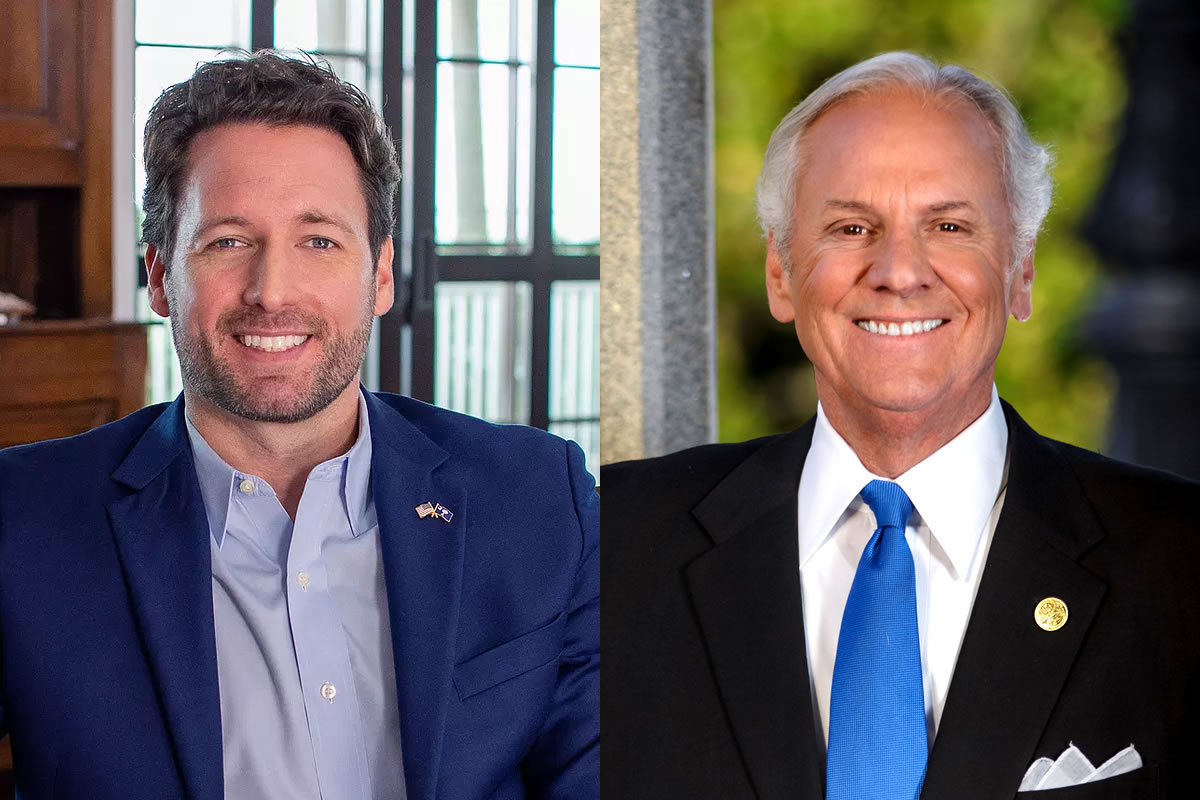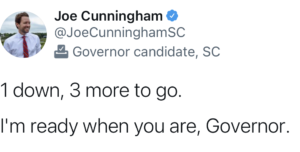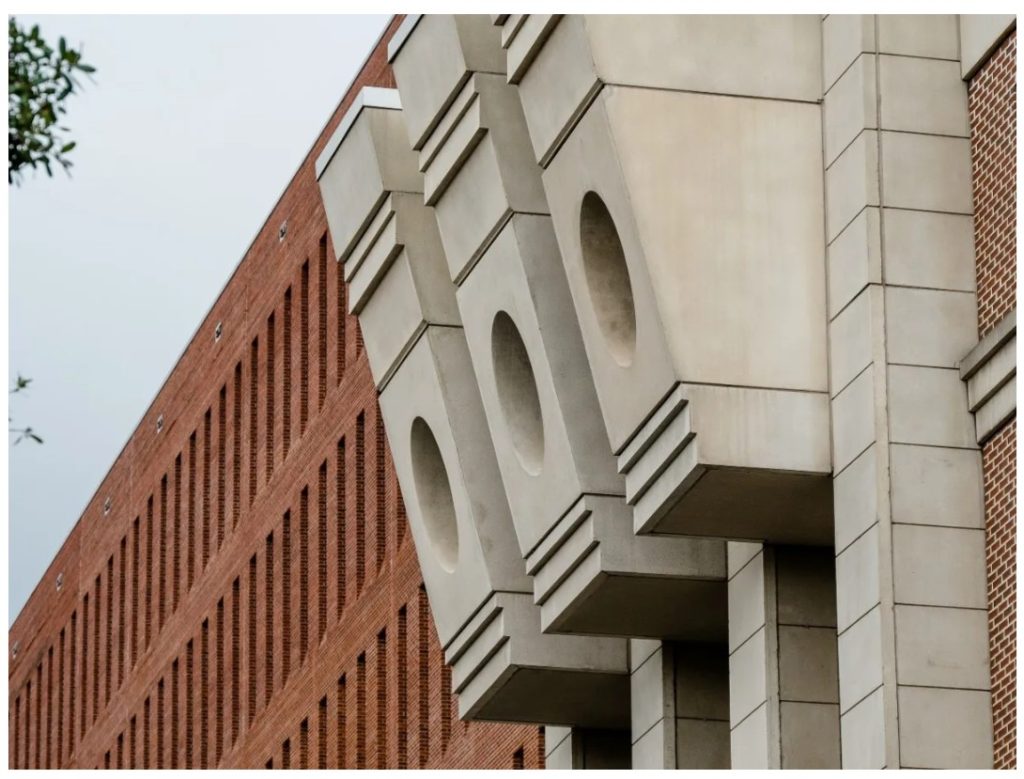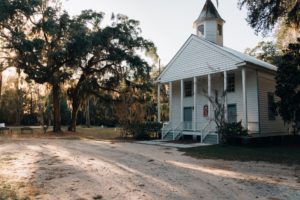STATEHOUSE REPORT | ISSUE 21.34 | AUG. 26, 2022
BIG STORY: Road quality app puts $700,000 of power in your pocket
NEWS BRIEFS: Cunningham, McMaster to debate Oct. 26
LOWCOUNTRY, Ariail: Trump’s running
COMMENTARY, Brack: Weaver needs to stop avoiding questions about qualifications
SPOTLIGHT: AT&T
FEEDBACK: Send us your thoughts
MYSTERY PHOTO: Three holes
Road app puts $700,000 of power in your pocket

By Andy Brack | A smartphone application developed by the brainiacs at MIT puts $700,000 of power to measure road quality in your pockets. Residents who use the app and communicate its results to elected officials have, for the first time, real data to back up continuing complaints about the state’s poor roads.
The app, called “Carbin,” is available for free and provides users with a crowdsourced tool that so far has measured more than a million miles of road quality around the world. A cover story. “Our roads suck,” in this week’s Charleston City Paper outlined how the app measured about 50 county roads, including 20 in peninsular Charleston with measures that showed them to be poor quality byways. None of the county’s roads were considered good, based on the app’s data collected by the newspaper
According to the director of the Carbin project at the Massachusetts Institute of Technology, the app is just as accurate as $700,000 laser machines on vans used by departments of transportation to measure road quality.
“The error between Carbin and laser measurements of the roughness profile is less than 3%,” said professor Franz-Josef Ulm, faculty director of MIT’s Concrete Sustainability Hub. “From an academic perspective, the Carbin algorithm has been published in peer-reviewed journals, which is critical to ensure scientific value of the development. This gives us great confidence …
“But ultimately … the question is will we do something meaningful for our community: improving our roads for reducing fuel consumption, for improving the air quality, for providing mobility solutions for all.”
People agree that roads need work

More than 500 people told the City Paper how bad rods are in the Charleston area. There are few differences in other communities around the state, although Charleston’s topography – it’s a city built on a marsh – seems to cause more problems than in most places.
The plethora of potholes on state roads wreck suspensions. Some are as thrilling — and scary — as roller coasters. Nails, rocks, glass and other trash eat tires, causing Charleston drivers to spend millions of dollars more on maintenance than they should.
“Driving on deteriorated roads costs South Carolina motorists $1.7 billion a year — $439 per driver — in the form of additional repairs, accelerated vehicle depreciation, and increased fuel consumption and tire wear,” according to a 2022 report by a national group that analyzes surface transportation.
Another big reason that roads have lots of pavement problems is a perennial lack of funding as needs outpaced funding. The state didn’t raise its gas tax for almost 30 years. Currently, South Carolina is in the fourth of six-year plan to raise the tax 2 cents per gallon per year.
There’s also an interconnected hydra of funding and the huge road bureaucracy that seems to allow a lot of finger-pointing between agencies. In Charleston, for example, the city controls 53% of its streets, which are generally maintained by the county. But the state or federal government controls the rest, many of them major thoroughfares. Both pay into county coffers for repaving, refurbishing and (fancy new term) “rejuvenation” of local roads.
Another indicator of funding shortfalls: Charleston County has 4,000 lane miles of roadways. This year, the county will be able to repave 25 miles of roads at a cost of about $10 million.
- To read the full story, click here
- Have a comment? Send to: feedback@statehousereport.com
Cunningham, McMaster to debate Oct. 26

Staff reports | S.C. Gov. Henry McMaster and Democratic opponent Joe Cunningham of Charleston will debate 7 p.m. Oct. 26 on SCETV and South Carolina Public Radio.
McMaster, who is running for his second full term, is familiar to voters since his first statewide debate in 1986, followed by debates through the years as he ran for attorney general, lieutenant governor and governor. If McMaster, 75, wins in November, he would become the state’s second-longest-serving governor by the end of the term since he completed a term originally won by former S.C. Gov. Nikki Haley.
 For Cunningham, a former one-term congressman, the race is his first as a statewide candidate. The debate will be a chance for many voters to see him for the first time. He’s called for four debates, prompting a Thursday Twitter comment, “1 down, 3 more to go. I’m ready when you are, Governor.”
For Cunningham, a former one-term congressman, the race is his first as a statewide candidate. The debate will be a chance for many voters to see him for the first time. He’s called for four debates, prompting a Thursday Twitter comment, “1 down, 3 more to go. I’m ready when you are, Governor.”
SCETV’s Gavin Jackson, host of “This Week in South Carolina” will moderate the one-hour debate. He will be joined by Andy Shain of The Post and Courier, which is also a host.
In other headlines:
One-third of S.C. residents with loans get help. President Joe Biden announced Wednesday a plan to forgive up to $20,000 in student loans for millions across the country. Individuals who make less than $125,000 per year will have $10,000 in loans forgiven, while those who received a Pell grant can receive up to $20,000. The order also extends the payment pause until early 2023. According to S.C. news reports, about 30% of S.C. residents with federal student loans will have their debts canceled permanently under the plan, which garnered praise and criticism.
![]() State employees to get parental leave. McMaster on Thursday signed a new law that will give six weeks of paid parental leave starting in October to state employees in South Carolina after they give birth to or adopt a child.
State employees to get parental leave. McMaster on Thursday signed a new law that will give six weeks of paid parental leave starting in October to state employees in South Carolina after they give birth to or adopt a child.
New law allows nonprofits to provide free glasses to children. Gov. Henry McMaster signed into law a new bill that will allow more organizations to provide free glasses to children. The law allows mobile optometry clinics to visit Title 1 schools and offer free screening, eye exams, fitting and providing students with glasses, with parental consent. McMaster held the signing at an elementary school in North Charleston.
DHEC reports 10,052 new COVID-19 cases. The South Carolina Department of Health and Environmental Control announced 10,052 cases of Covid-19 and 13 deaths across the state. S.C. news reports the state continues to decline in the recorded number of cases.
Monkeypox testing problems similar to Covid failures. An infectious disease specialist at the Medical University of South Carolina and others have voiced concerns over the current method of testing monkeypox. Experts say that similar problems during the early Covid-19 pandemic are showing up again. For Covid-related news, state health officials reported no significant increase for students since the start of the new school year.
S.C. unemployment rate unchanged. The state’s unemployment rate for July was unchanged and remains at 3.2%.
S.C. gas prices now average $3.42 per gallon. The prices dropped another 4.6 cents over the last week.
Trump’s running

Cartoonist Robert Ariail often interprets things a little differently, but always has an interesting take on what’s going on in South Carolina. Love the cartoon? Hate it? What do you think: feedback@statehousereport.com.
Weaver needs to stop avoiding questions about qualifications
By Andy Brack | It’s completely understandable why Ellen Weaver and her campaign for state superintendent of education are not really answering key questions about her qualifications: They don’t want anybody to talk about it.
 Weaver, a longtime GOP stalwart and policy wonk, is running to be the state’s top education official, but she doesn’t have any classroom experience. State law doesn’t absolutely require it, but in 2018, the Republican-controlled General Assembly added a requirement for the state superintendent must have “the minimum of a master’s degree and substantive and broad-based experience in the field of public education including, but not limited to, service as a classroom teacher, principal, other school or school district administrator, school district superintendent, or other education policy making body at either the state or local level or any combination of them” or “the minimum of a master’s degree and substantive and broad-based experience in operational and financial management in any field of expertise including, but not limited to, finance, economics, accounting, law or business.”
Weaver, a longtime GOP stalwart and policy wonk, is running to be the state’s top education official, but she doesn’t have any classroom experience. State law doesn’t absolutely require it, but in 2018, the Republican-controlled General Assembly added a requirement for the state superintendent must have “the minimum of a master’s degree and substantive and broad-based experience in the field of public education including, but not limited to, service as a classroom teacher, principal, other school or school district administrator, school district superintendent, or other education policy making body at either the state or local level or any combination of them” or “the minimum of a master’s degree and substantive and broad-based experience in operational and financial management in any field of expertise including, but not limited to, finance, economics, accounting, law or business.”

The requirement was part of a legislative package that assumed passage of a constitutional referendum to make the office become appointed, not elected. The referendum failed, but for some reason, lawmakers enacted the qualification regardless of the passage of the referendum.
During the 2022 GOP primary campaign, Weaver said she would meet the new requirement to have the master’s degree. She enrolled in a program in April at her alma mater, conservative Bob Jones University, to get a master’s degree in educational leadership.
That led one wag to observe, “I don’t know anybody who knew this far in advance they would be awarded a degree. Do you know at the beginning of a program you’re going to graduate?”
The degree from Bob Jones which requires completion of 11 courses of three credit hours each. It reportedly usually takes a year or year and a half to complete. Required classes include:
- EAS 660: Foundations of Leadership
- EAS 663: School Business Management
- EAS 670: Pupil Personnel Services
- EAS 676: Personnel Administration & Supervision
- EAS 678: Organizational Leadership
- EAS 695: Educational Leadership Action Research Project
- Ed 605: History & Philosophy of Education
- Ed 638: Curriculum Development & Design
- Ed 661: Assessment of Learning
- Ed 667: Technology in Education
- Ed 690: Research in Education
We asked Weaver for information on the progress she’s having with the degree. Among the questions we asked:
- Which classes have you completed? Please provide the class numbers.
- Which classes are you currently working on?
- Are there any classes for which you got credit without actually having to take them? If so, which were they and did they cost anything?
- When do you anticipate finishing the required coursework and receiving the degree?
- What happens if you don’t finish the coursework or the degree by election day or, if you win, if it’s not done by the time that a state superintendent would be sworn in?
- Are you, your campaign or the Republican Party currently preparing any legal challenge to the GOP-backed law requiring a master’s degree for superintendent candidates?
We got this reply from Robert D. Cathcart III, Weaver’s communications director: “Please find our on the record statement below: ‘Ms. Weaver is on track to earn her Master’s degree by mid-October.’”
Thanks, Robert. That’s not too helpful. Bob Jones University spokesman Randy Page said Friday he couldn’t answer all of the questions due to privacy regulations, but confirmed Weaver is in the graduate online degree program. “BJU does not currently award credit through prior learning assessment,” he said.
This reticence is, quite frankly, an affront to all South Carolina voters. When candidates run for public office, they willingly inject themselves into public debate and scrutiny. By not providing details of her qualifications on a degree that she just started, Weaver’s campaign is simply thumbing its nose to voters and saying, “Trust me.”
Perhaps voters should trust, but in today’s combative political environment regarding truth, they also should verify. Weaver’s campaign is avoiding verification of qualifications because she wants to control her message, which is sure to come in the fall with slick television ads and internet persuasion campaigns.
Put pressure on Weaver to share specific progress on her master’s degree. Demand that she answer questions. If she won’t give you information you need to make an informed decision on whether she should hold the job, you should look for another candidate.
Andy Brack is editor and publisher of Statehouse Report and the Charleston City Paper. Have a comment? Send to: feedback@statehousereport.com.
AT&T
 The public spiritedness of our underwriters allows us to bring Statehouse Report to you at no cost. Today’s featured underwriter is AT&T Inc.
The public spiritedness of our underwriters allows us to bring Statehouse Report to you at no cost. Today’s featured underwriter is AT&T Inc.
AT&T Inc. (NYSE:T) helps millions around the globe connect with leading entertainment, mobile, high speed Internet and voice services. We’re the world’s largest provider of pay TV. We have TV customers in the U.S. and 11 Latin American countries. We offer the best global coverage of any U.S. wireless provider*. And we help businesses worldwide serve their customers better with our mobility and highly secure cloud solutions.
- Additional information about AT&T products and services is available at http://about.att.com.
- Follow our news on Twitter at @ATT, on Facebook at http://www.facebook.com/att and YouTube at http://www.youtube.com/att.
* Global coverage claim based on offering discounted voice and data roaming; LTE roaming; voice roaming; and world-capable smartphone and tablets in more countries than any other U.S. based carrier. International service required. Coverage not available in all areas. Coverage may vary per country and be limited/restricted in some countries.
Send us your thoughts
Have a comment? Send your letters or comments to: feedback@statehousereport.com. Make sure to provide your contact details (name, hometown and phone number for verification. Letters are limited to 150 words.
Three holes

This week’s mystery shows a building somewhere in South Carolina with three odd, architectural holes on its side. Bonus points if you can tell us something about the building. Send your guess – and your name and hometown – to feedback@statehousereport.com.
 Last week’s photo, “Old white church,” is the First Union African Baptist Church on Daufuskie Island. According to longtime sleuth Jay Altman of Columbia, it is the only active church on Daufuskie Island.
Last week’s photo, “Old white church,” is the First Union African Baptist Church on Daufuskie Island. According to longtime sleuth Jay Altman of Columbia, it is the only active church on Daufuskie Island.
Congratulations to others who correctly answered: Allan Peel of San Antonio, Texas; Meg Stanley and Elizabeth Jones, both of Columbia; Bill Segars of Hartsville; Jacie Godfrey of Florence; George Graf of Palmyra, Va.; Curtis Joyner of Charleston; Pat Keadle of Wagener; and Lisa Griffin of Tega Cay.
>> Send us a mystery picture. If you have a photo that you believe will stump readers, send it along (but make sure to tell us what it is because it may stump us too!) Send to: feedback@statehousereport.com and mark it as a photo submission. Thanks.
- ORDER NOW: Copies are in Lowcountry-area bookstores now, but if you can’t swing by, you can order a copy online today.
- Now available as an e-book!
ABOUT STATEHOUSE REPORT
Statehouse Report, founded in 2001 as a weekly legislative forecast that informs readers about what is going to happen in South Carolina politics and policy, is provided to you at no charge every Friday.
- Editor and publisher: Andy Brack, 843.670.3996
Donate today
We’re proud to offer Statehouse Report for free. For more than a dozen years, we’ve been the go-to place for insightful independent policy and political news and views in the Palmetto State. And we love it as much as you do.
But now, we can use your help. If you’ve been thinking of contributing to Statehouse Report over the years, now would be a great time to contribute as we deal with the crisis. In advance, thank you.
Buy the book
Now you can get a copy of editor and publisher Andy Brack’s We Can Do Better, South Carolina! ($14.99) as a paperback or as a Kindle book ($7.99). . The book of essays offers incisive commentaries by editor and publisher Andy Brack on the American South, the common good, vexing problems for the Palmetto State and interesting South Carolina leaders.
More
- Mailing address: Send inquiries by mail to: P.O. Box 21942, Charleston, SC 29413
- Subscriptions are free: Click to subscribe.
- We hope you’ll keep receiving the great news and information from Statehouse Report, but if you need to unsubscribe, go to the bottom of the weekly email issue and follow the instructions.
- Read our sister publication: Charleston City Paper (every Wednesday in print; Every day online)
- © 2022, Statehouse Report, a publication of City Paper Publishing, LLC. All rights reserved.


